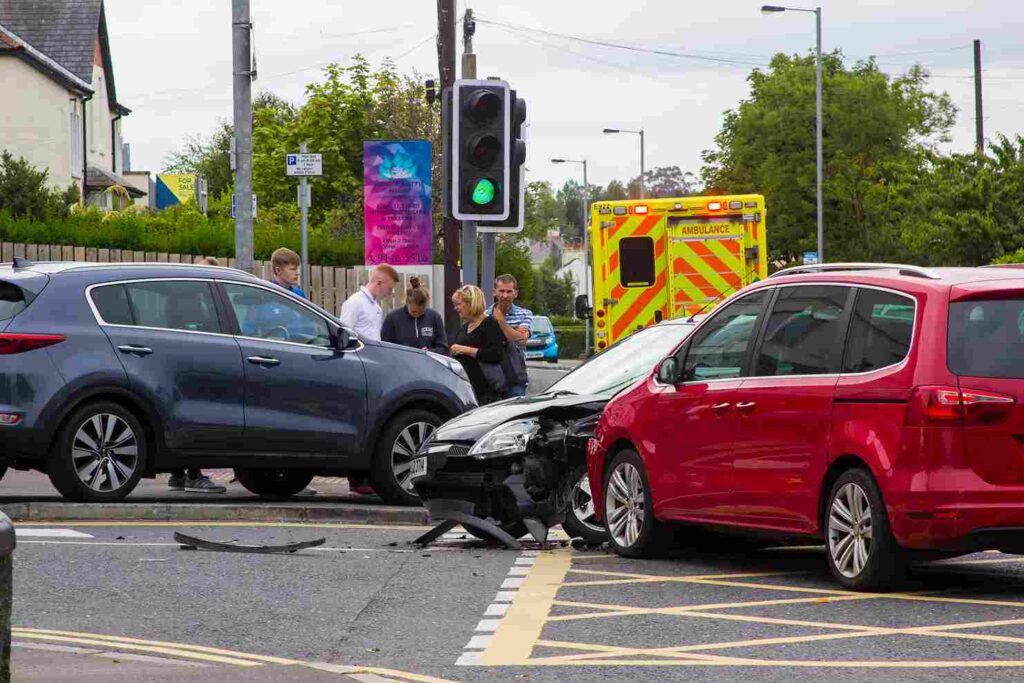According to the Texas Department of Transportation (TxDOT), Fort Worth had over 13,000 accidents in 2022. This means there were approximately 37 incidents each day.
Unfortunately, Fort Worth does not have the reputation of being a safe city for drivers. Forbes list of 50 cities with the worst drivers ranks Fort Worth 9th.
Some of the factors considered to determine this ranking include the number of fatal car accidents, the number involving a drunk driver, a distracted driver, someone who was speeding, and how many people were killed in fatal crashes. The most common causes of accidents in Fort Worth, which led to this ranking, included texting, speeding, and drunk driving.
With a population of over 935,000 in the city (as of 2021) and thousands of visitors coming to the area each day, these numbers are not as staggering as they could be.
While true, no one expects to be in an accident and the aftermath of this incident can be challenging to handle alone. At Patterson Law Group, our Fort Worth car accident attorneys can help you navigate the legal process while protecting your legal rights and options.
Texas’s Stance on Car Accident Claims
Navigating the aftermath of a car accident in Texas demands a basic understanding of the state’s car accident laws, particularly that Texas operates under a “fault” insurance system.
Texas: A “Fault” Insurance State
In Texas, the “fault” insurance system means that the driver who caused the accident bears financial responsibility for all damages. This system allows for several avenues for seeking compensation:
- Through your insurance
- By filing a claim directly against the at-fault driver’s insurance
- By pursuing a personal injury lawsuit
After an accident, understanding how the system works is necessary. If you are confused or don’t understand your rights, a Fort Worth car accident lawyer can clarify the situation and help you take the right step forward.
Compensation and Negligence
The compensation provided by a car accident claim hinges on negligence. You must show the other driver’s negligence caused the accident. To do this, you must have evidence that the other driver broke traffic laws or did not act reasonably, which caused the accident.
As mentioned, negligence directly affects your compensation. Another factor that impacts your compensation is the modified comparative fault rule. This means your compensation can be reduced by your percentage of fault.
Types of Compensation Available
Several types of compensation are available in car accident claims. What you receive depends on the facts of your case.
The compensation typically falls into one of these categories:
- Economic damages
- Non-economic damages
- Punitive damages
Compensatory Damages: Economic and Non-Economic
Compensatory damages are intended to “compensate” the victim for losses incurred due to the accident. Economic damages cover financial losses with a clear monetary value, such as medical expenses, property damage, and lost wages. These are straightforward and quantifiable, making them easier to prove and claim.
Non-economic damages, on the other hand, compensate for non-financial losses, which are more subjective and more complex to quantify. This includes pain and suffering, emotional distress, and loss of enjoyment of life.
For individuals who have not sustained physical injuries in a Fort Worth car accident, claiming for non-economic damages like emotional distress or the loss of use of a vehicle becomes particularly relevant. These damages acknowledge the accident’s impact beyond physical harm, covering aspects like the inconvenience and emotional turmoil of losing access to your vehicle.
Punitive Damages
Texas law allows for punitive damages in addition to compensatory damages in some car accident cases. Unlike compensatory damages, punitive damages are not designed to compensate the victim.
Instead, they aim to punish the at-fault party for especially reckless or malicious behavior and deter similar conduct in the future. Although less common and unrelated to compensation for loss, they play a crucial role in justice for egregious cases.
Proving Your Case Without Physical Injuries
After a car accident, you may think the only way to recover compensation is if you were injured. However, this is not the case.
While physical injuries often provide tangible evidence of harm, proving non-physical damages requires a strategic approach to documentation and evidence collection. Some evidence and documentation needed to prove your right to compensation include property damage, emotional distress, and other non-injury-related losses.
Documenting Property Damage
Property damage claims are relatively straightforward in terms of evidence. Photographs of the damage to your vehicle or other property are crucial. They should capture the extent of the damage from multiple angles immediately following the accident.
Additionally, obtaining repair estimates from reputable auto shops clearly assesses the financial impact. This evidence and the police report from the accident help you build a strong claim for compensation.
Claiming Emotional Distress
Emotional distress claims, while more complex, are equally valid. Documenting this non-physical impact involves gathering evidence, including diary entries detailing your emotional state post-accident, testimony from friends or family members who have observed changes in your behavior or emotional well-being, and professional evaluations from psychologists or psychiatrists. These pieces of evidence help to substantiate the psychological effects of the accident.
Tips for Documenting Your Claim
Documenting your car accident claim is necessary to recover compensation without physical injuries. Documentation best practices include:
- Timely Evidence Collection: Collect and organize evidence as soon as possible after the accident to ensure its accuracy and relevance.
- Detailed Record-Keeping: Maintain a detailed account of any emotional distress symptoms, missed work days, and how the accident has affected your daily life.
- Witness Statements: Statements from witnesses can corroborate your account of the accident and its aftermath, lending credibility to your claim.
Partnering with experienced car accident lawyers in Fort Worth can assist in gathering and organizing the required documentation.
Challenges and Considerations
Claiming compensation after a car accident in Fort Worth without visible physical injuries presents unique challenges. While there are challenges, it does not mean it is impossible to do this.
Proving Emotional Distress
Proving emotional distress without physical injuries is a significant challenge. Unlike physical injuries, where medical reports can serve as concrete evidence, emotional distress is subjective and requires a different approach to substantiation.
Demonstrating the severity and impact of emotional distress necessitates detailed documentation, including psychological evaluations, testimony from mental health professionals, and personal journals or diaries that record the emotional and psychological aftermath of the accident.
The Importance of Comprehensive Evidence
The absence of physical injuries can significantly affect the perception of your claim. Insurance companies and legal entities may be skeptical of the severity of your experience if it lacks the tangible evidence typically associated with car accident claims.
Having the right evidence is necessary to build your case. The types of evidence that are beneficial in this situation include:
- Eyewitness accounts
- Surveillance footage
- Police reports
You also need documentation of all accident-related information, including photos of the scene, your vehicle, and any personal property affected.
How a Fort Worth Car Accident Attorney Can Help
Regardless of how straightforward your case seems, having the advice and expertise of a car accident lawyer in Fort Worth is invaluable. At Patterson Law Group, our attorneys understand the potential issues proving claims without physical injuries occurred. We can help you gather evidence and navigate the claims process.
Our team will effectively highlight the significance of non-physical injuries and losses, ensuring that all losses you experience are recognized and compensated. We will work to make the process as stress-free for you as possible.
Contact Patterson Law Group for Help with Your Fort Worth Car Accident Claim
Not all car accidents cause physical injuries. If you are in this situation, consider yourself lucky.
However, just because you were not injured does not mean you did not experience other losses. Our Fort Worth car accident lawyers can determine what your losses are worth and fight for compensation on your behalf.
Contact our office today if you need assistance filing a Fort Worth car accident claim.











